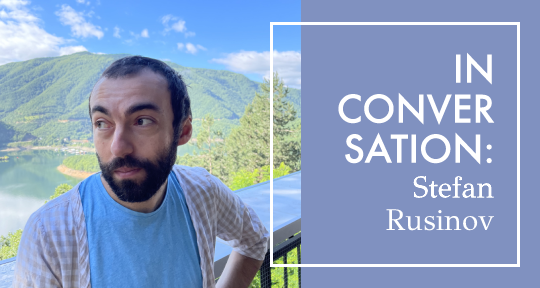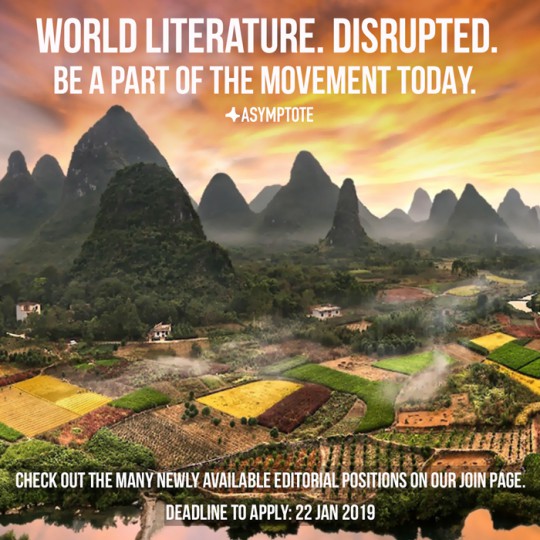In 1999, almost 170 years after his birth, Bulgaria honored publisher Hristo G. Danov’s legacy by establishing national literary awards in his name. In 2021, Stefan Rusinov, a translator who isn’t afraid to ask the important questions about the essence of his trade, won Best Fiction Translator for multiple books he had worked on over the course of twenty-four months. In addition to these admirable recent endeavors in Chinese prose, he juggles his work at Sofia University and his tasks as a freelance interpreter. Our conversation highlights his current projects, the importance of honest answers, and the value of simply “hanging out” with writers.
Andriana Hamas (AH): I would like to begin by asking you about your Бележка под линия (Footnote) podcast, thanks to which you meet fellow translators and discuss “behind-the-scenes torments,” the decisions they eventually have to make, and their inevitable missteps or failures. What have you learned so far?
Stefan Rusinov (SR): I’ve learned a lot, which was really the selfish reason to start this project to begin with. Private conversations with other translators and several years of translating gradually made me realize how case-specific this activity is and that mastery comes rather from accumulating solved problems than from learning universal principles (not to underestimate translation theory). That’s why I wanted to create a space where we won’t so much muse over the nature of translation and other such abstract questions, but we would dig into the specifics, where translators would be put in the position of explaining their considerations and decisions to someone who doesn’t know their working language. Nine episodes on, I’m even more certain that discussing actual problems encountered by translators from all kinds of languages is an important way to understand this activity (and also a major way to pump up my own translation skills).
I’ve learned, or rather, I’ve confirmed, that uncertainty is part of the game, and it should be. I find it very hard to trust a confident translator. There are tons of problems we need to solve and tons of decisions we need to make and, to borrow Wolfgang Iser’s idea of interpretation, the mere existence of these cases means that we are bound to create a gap between the original and the translation. So, in a way, we are bad translators by default.
I also learned that in French unfuckable means “incomprehensible.” READ MORE…



